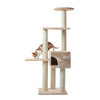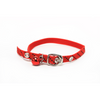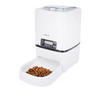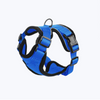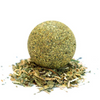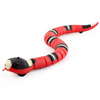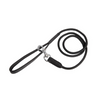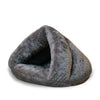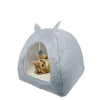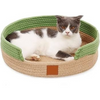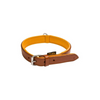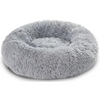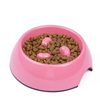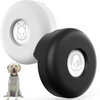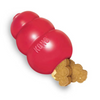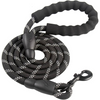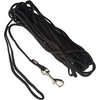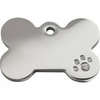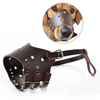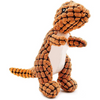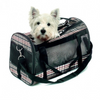Our dogs are precious members of our families, and we want to keep them healthy and safe. One of the simplest ways to care for our four-legged friends is to make sure they don't eat foods that could be harmful to them. Some common food substances for humans can be toxic to dogs, and knowing these dangerous foods is crucial to avoid any complications.
In this article, we will explore some of the most commonly found foods in our kitchens that can be harmful to our furry friends.
-
Chocolate
Chocolate is perhaps one of the most well-known foods to be dangerous for dogs. It contains theobromine and caffeine, two substances that are toxic to canines. The severity of symptoms depends on the amount of chocolate consumed and the size of the dog, but it can lead to vomiting, diarrhea, increased heart rate, seizures and even death. It is essential to keep chocolate out of your dog's reach.
-
Onion and garlic
Onions, garlic and other members of the alliaceae family contain organosulfur compounds that can be toxic to dogs. Eating onion or garlic can cause a condition called hemolytic anemia, which destroys dogs' red blood cells. Symptoms may include weakness, vomiting, diarrhea and loss of appetite. Even small amounts of onion or garlic can be dangerous, so it is essential to avoid giving these foods to your dog.
-
Grapes and raisins
Grapes and raisins are associated with potentially serious toxicity in dogs. Eating grapes can lead to vomiting, diarrhea, lethargy, kidney problems, and in more severe cases, acute kidney failure. The exact reasons for this toxicity are not fully understood, so it is best to play it safe and avoid giving grapes to your dog.
-
Dairy products
Although most dogs tolerate milk well, some may be lactose intolerant, which can lead to gastrointestinal upset such as vomiting and diarrhea. High-fat dairy products, like ice cream, can also cause digestive problems. If you want to give your dog a dairy product, opt for lactose-free yogurt or low-fat cheese, but in small quantities.
-
The cooked bones
Although many dog owners give their pets cooked bones as a treat, it can be dangerous. Cooked bones can break into sharp pieces and cause serious injury to your dog's mouth, throat, or intestines. It's best to opt for raw, uncooked bones or safe alternatives, like specially designed chew toys.
-
Macadamia nuts
Macadamia nuts are particularly toxic to dogs. Eating these nuts can lead to symptoms such as tremors, muscle weakness, vomiting, fever, and gastrointestinal problems. It is recommended to keep macadamia nuts out of reach of your dog and not give them products containing these nuts, such as cookies.
-
The alcohol
Alcohol, even in small amounts, is extremely harmful to dogs. The ethanol found in alcohol can cause symptoms such as vomiting, diarrhea, impaired coordination, lethargy, seizures and even death. Be sure to never let your dog have access to alcoholic beverages and keep containers out of his reach.
-
Artificial sweeteners
Some artificial sweeteners, such as xylitol, commonly found in sugar-free products, can be extremely toxic to dogs. Consumption of xylitol can cause excessive insulin release, leading to hypoglycemia, vomiting, seizures, and in severe cases, liver failure. Always check the labels of the products you buy to make sure they do not contain xylitol, and keep them out of your dog's reach.
Pay attention to prohibited foods for dogs
Your dog's food safety is essential to maintaining their health and well-being. Educate yourself about dangerous foods for dogs and keep them out of reach of your four-legged friend. If you think your dog has ingested one of these toxic foods or if he is exhibiting any unusual symptoms, consult a veterinarian immediately. Quick action can mean the difference between life and death for your pet.
Ultimately, by being careful in choosing the foods you share with your dog, you help ensure a long and healthy life for your faithful friend.





